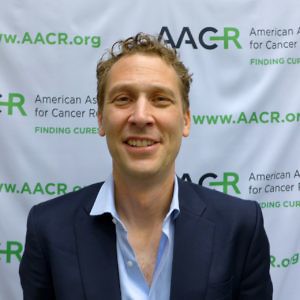What does atezolizumab TNBC data presented at AACR17 tell us about breast cancer immunotherapy?
Peter Schmid FRCP, MD, PhD is Professor of Cancer Medicine at Barts Cancer Institute in London, where he is also Clinical Director of the St. Bartholomew’s Breast Cancer Centre and leads the cancer immunotherapy group.
One of my favourite interview quotes of all time comes from his fellow Barts cancer researcher, Professor Tom Powles who told BSB about the results he had seen with the anti PD-L1 monoclonal antibody, atezolizumab (Roche/Genentech) in urothelial bladder cancer:
“I have a cohort of men and women now, who had been told they have 6 months to live who are now two or three years down the line.”
This encapsulates the hope that cancer immunotherapy offers. (See post: Atezolizumab PDL1 Checkpoint Inhibitor will change Bladder Cancer Treatment).
Barts Cancer Institute in the City of London is pioneering research into cancer immunotherapy in both the clinical and preclinical arenas.
Readers may recall we previously interviewed Professor Fran Balkwill last year about the work her research group is doing into modelling the tumour microenvironment. This is an exciting area that we can expect to hear more about. (See post: Modelling the Tumor Microenvironment).
So where are we with breast cancer immunotherapy in triple negative breast cancer (TNBC)?
It’s now two years since the first atezolizumab TNBC clinical trial data was presented by Dr Leisha Emens (Johns Hopkins) at the 2015 annual meeting of the American Association for Cancer Research (AACR), how time flies! (See post: Checkpoint Inhibitor Data Rocks AACR 2015)
As regular readers know, we like to follow stories over time and report on how the longitudinal data progresses.
Professor Peter Schmid kindly spoke to BSB at the 2017 AACR annual meeting in Washington DC where he presented more mature clinical trial data for the PD-L1 checkpoint inhibitor, atezolizumab, as a single agent in TNBC.
What are the key take homes from this data, and the ongoing challenges and opportunities in TNBC? Prof Schmid shared his unique perspective.
This is the first in a series of expert interviews from #AACR17.
Subscribers can login to read more
This content is restricted to subscribers
